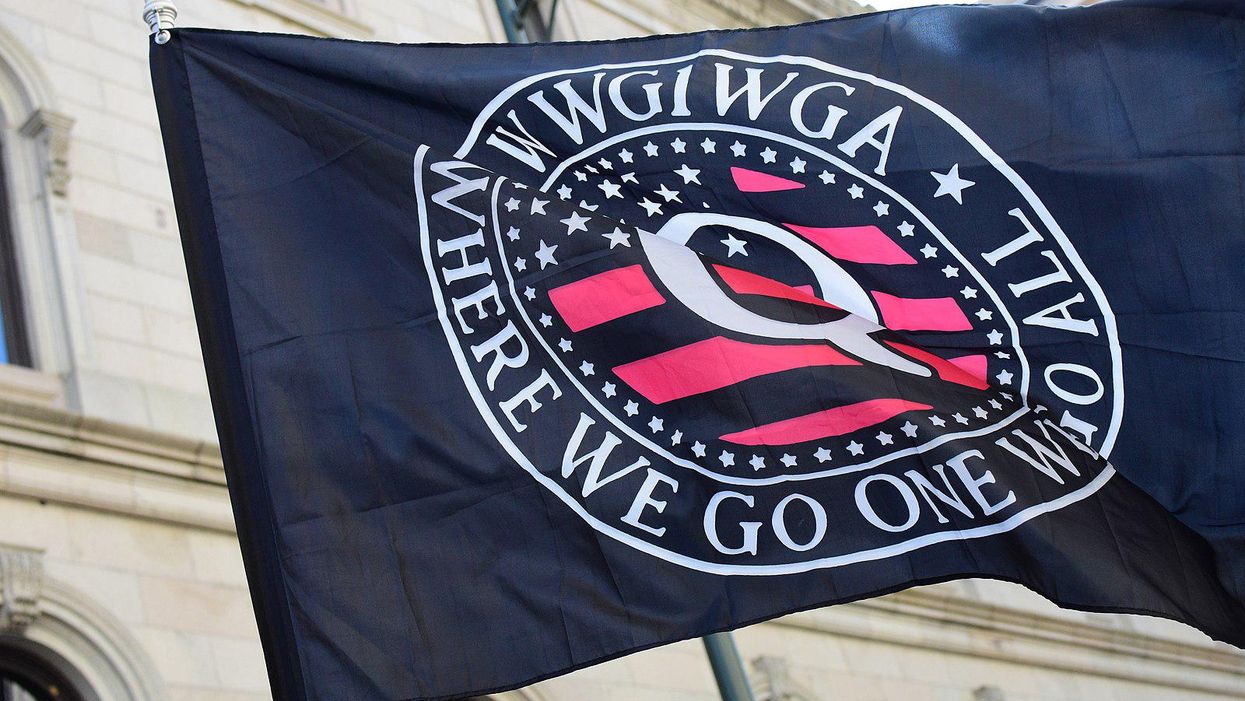Evangelical Pastors ‘Alarmed’ By QAnon’s Growing Sway In Their Congregations

Evangelical Pastors 'Alarmed' By QAnon's Growing Sway In Their Congregations
Reprinted with permission from Alternet
Those who had been warning that the QAnon conspiracy cult was dangerous were reminded just how dangerous when QAnon supporters — along with members of the Proud Boys, the Oath Keepers, the Three Percenters and other extremist groups — attacked the U.S. Capitol Building on January 6. Some QAnon supporters identify as Christian fundamentalists, and journalist Mike Allen discusses the inroads QAnon has made among white evangelicals in an article published by Axios on Memorial Day 2021.
Allen explains, "QAnon conspiracy theories have burrowed so deeply into American churches that pastors are expressing alarm…. Russell Moore, one of America's most respected evangelical Christian thinkers, told me he's 'talking literally every day to pastors, of virtually every denomination, who are exhausted by these theories blowing through their churches or communities.'"
Allen reports that a poll taken by Ipsos in March for the Public Religion Research Institute and Interfaith Youth Core found that 15 percent of Americans join QAnon in believing that "the government, media, and financial worlds in the U.S. are controlled by a group of Satan-worshipping pedophiles who run a global child sex trafficking operation."
Kristin Du Mez, a historian at Calvin University and author of the book Jesus and John Wayne, told Axios, "For those who hope that the events of January 6 are in our past, I think this data gives little in the way of assurance."
That poll found that 26 percent of Hispanic Protestants and 25 percent of white evangelical Protestants were more likely to agree with QAnon than other groups.
Du Mez told Axios, "There's also an emphasis in certain circles on deciphering biblical prophecies that bears some similarities to decoding QAnon conspiracies — the idea that there is a secret meaning hidden within the text that can be discerned by individuals who have eyes to see. This isn't just a problem for faith communities, of course. It is deeply troubling in terms of the health of our democracy."
Natalie Jackson, research director at PRRI, told Axios the poll doesn't mean that 15 percent of Americans "are spending their entire lives only paying attention to Q.... but it does mean this group is amenable to believing these conspiracy theories."
- QAnon Cultists And Evangelical Theocrats Baptize The GOP In ... ›
- Get Thee Vaccinated, Evangelical Friends - National Memo ›
- Excerpt: 'UNHOLY: Why White Evangelicals Worship At The Altar Of ... ›
- Why The QAnon Cult Is Now Fixated On March 4 - National Memo ›
- Why The QAnon Cult Is Obsessed With Child Trafficking And Kiddie ... ›
- The Strange Nexus Between QAnon And Australia’s Right-Wing Prime Minister ›
- Churches Are Challenged As Political Polarization Deepens ›
- Survey: White evangelicals, Hispanic Protestants, Mormons most ... ›
- QAnon Conspiracies Sway Faith Groups, Including 1 in 4 White ... ›
- QAnon is spreading amongst evangelicals. These pastors are trying ... ›
- Evangelicals are looking for answers online. They're finding QAnon ... ›
- QAnon and evangelicals: its time to address the QAnon'ers ›
- One-Quarter of White Evangelicals Believe QAnon 'Storm' Is Coming ... ›
- How QAnon uses religion to lure unsuspecting Christians - CNN ›
- How QAnon Conspiracy Is Spreading In Christian Communities ... ›
- Why QAnon Has Attracted So Many White Evangelicals ... ›








